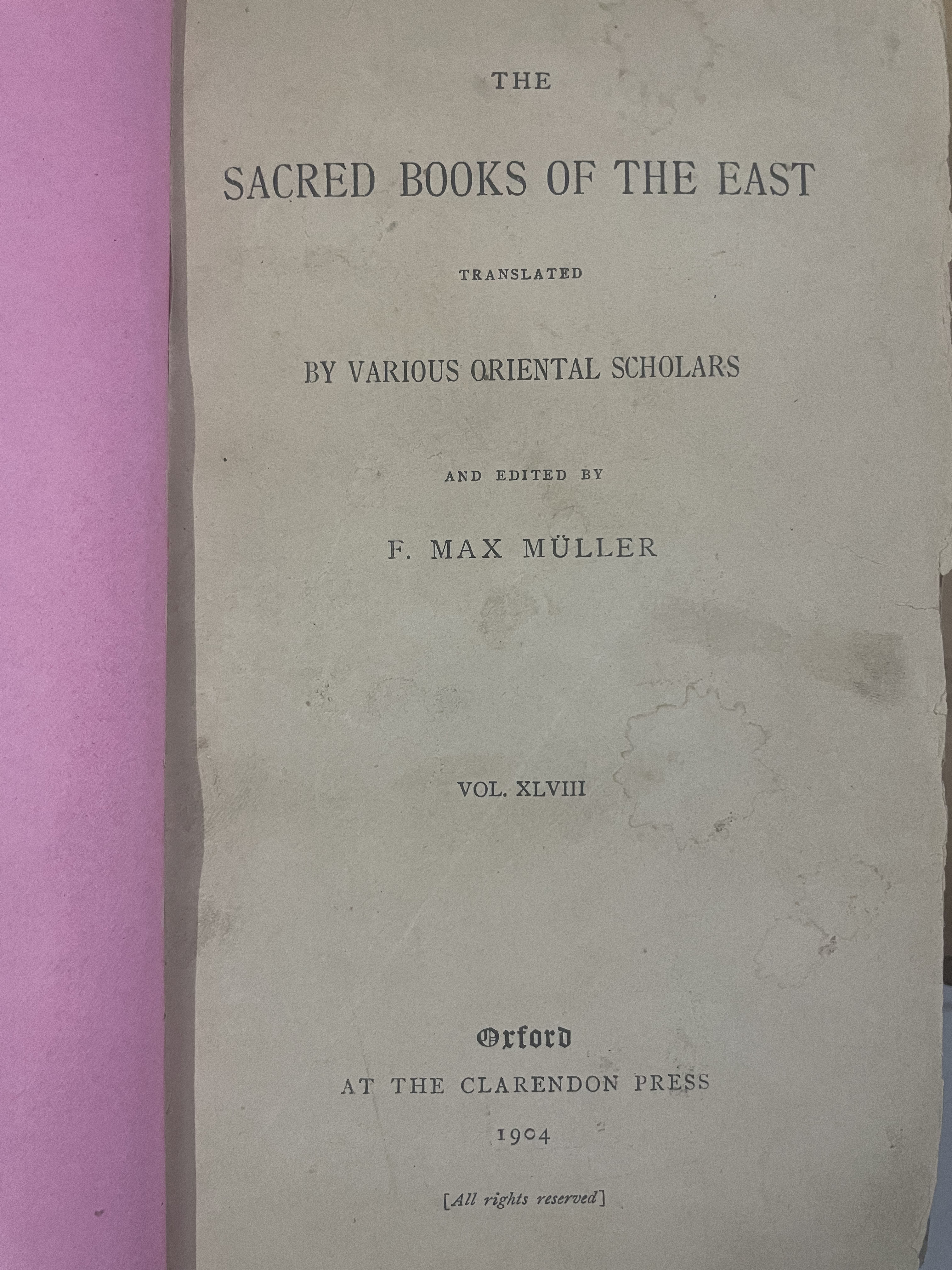The Sacred books of The East Vol XLVIII

About
Summary
Exquisite
TOC
Details
Related
URL
Images
Overview
The Sacred Books of the East, edited by F. Max Müller, is a comprehensive, multi-volume collection of English translations of Asian religious texts published between 1879 and 1910. The series encompasses a wide array of sacred books from various non-Christian religions, aiming to provide access to these traditions for a broad audience. Specifically, Volume XLVIII of this series focuses on The Vedanta Sutras with the commentary of Ramanuja.Volume XLVIII of The Sacred Books of the East is dedicated to the Vedanta Sutras with the commentary of Ramanuja. The Vedanta Sutras are foundational texts of the Vedanta school of Hindu philosophy, which explores the nature of reality, the self, and the relationship between the individual soul (Atman) and the ultimate reality (Brahman).
Importance of Book
Volume XLVIII of The Sacred Books of the East may not be widely read today, it remains a valuable resource for scholars and anyone interested in exploring the depths of Vedanta philosophy from the perspective of Ramanuja. The series as a whole stands as a testament to the importance of cross-cultural understanding and the enduring power of religious and philosophical ideas.
Key Themes
Nature of Reality: The Vedanta Sutras explore the nature of reality, seeking to understand the relationship between the visible world and the underlying truth.
The Self: The texts delve into the nature of the self (Atman), its connection to Brahman, and the path to self-realization.
Liberation: A central theme is the concept of liberation (Moksha) from the cycle of birth and death, and the means to achieve this state.
Theism vs. Non-Dualism: Ramanuja's commentary presents a theistic perspective on Vedanta, contrasting with the non-dualistic (Advaita) interpretations of other philosophers like Shankara.
Bhakti (Devotion): Ramanuja emphasizes the importance of devotion (Bhakti) as a means to attain liberation, highlighting the love and surrender to a personal God.
Cultural Significance
Promotion of Eastern Thought: The Sacred Books of the East series played a role in introducing Eastern religious and philosophical ideas to the Western world.
Influence on Western Intellectuals: The series influenced Western intellectuals, writers, and artists, contributing to a broader interest in Eastern spirituality and philosophy.
Preservation of Cultural Heritage: By translating and publishing these texts, the series helped preserve and promote the cultural heritage of India and other Asian countries.
Effects on Society
It is difficult to determine the precise effect of Volume XLVIII of The Sacred Books of the East on Indian society. However, the series as a whole had a number of broader impacts:
Shaping Western Perceptions of India: The series shaped Western perceptions of India's religious and philosophical traditions, contributing to a more nuanced understanding of Indian culture.
Promoting Dialogue: The series may have fostered dialogue and exchange between Eastern and Western scholars and religious leaders.
Reinforcing Indian Identity: By making these texts available to a wider audience, the series may have contributed to a sense of pride and identity among Indians, both in India and abroad.
Conclusion
The Sacred Books of the East series facilitated a greater understanding of Eastern religious texts in the West, and, although interpretations and translations may evolve, it continues to be an important collection for those interested in comparative religion and Eastern philosophy.
Title
The Sacred books of The East Vol XLVIII
Author
F Max Muller
Name of Publisher
The Clarendon Press Oxford
Publish Date
1904
Subject
\\\"The Sacred Books of the East,\\\" Volume XLVIII, edited by F. Max M?ller and published in 1897, presents the \\\"Saddharma-Pundarika\\\", commonly known as the \\\"Lotus Sutra\\\". This volume is
Vintage
1901-1947
Number of Pages
781
Category
Hindu studies
Sub Category
NA
Rarity
RARE
